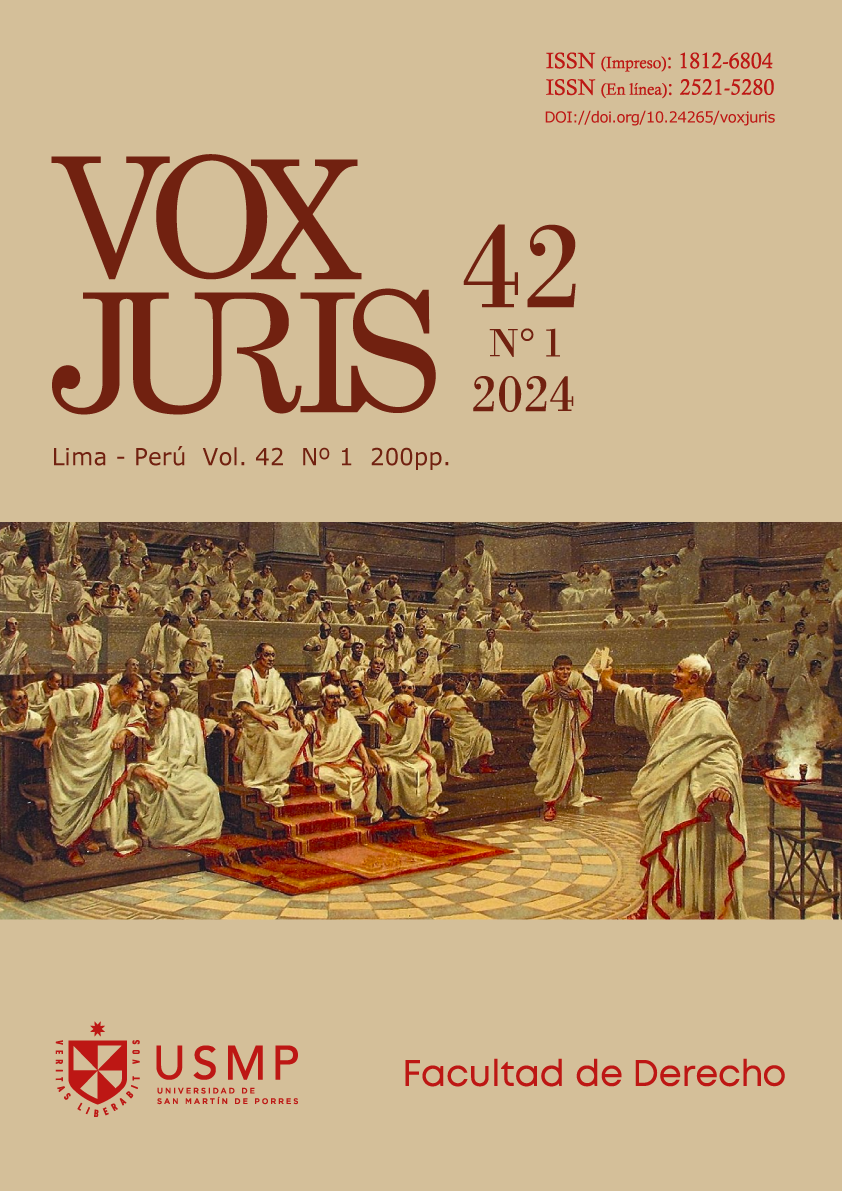THE LEGAL EVOLUTION OF THE GUARANTEE OF WATER LAW IN ECUADOR
Abstract
The legal treatment that has been given to water in Ecuador is interesting from the point of view of its constitutional evolution, because although it is true that it was considered a natural resource, it is now treated as a human right and a strategic sector. In the present investigation, based on a historical-legal methodology, a review is made of how the treatment of wáter resources has advanced at a constitutional level, and how international instruments, as well as the jurisprudence of international organizations and the soft law, influenced the Ecuadorian constituent for special treatment, being the first constitution to recognize it as a human and fundamental right. The research indicates that, despite the advances at the regulatory level, there is still a long way to go in terms of institutions and public resources that allow the generation of infrastructure to guarantee the right.
Downloads
References
Acosta, A. & Martínez, E. (2010). Agua, un derecho humano fundamental. Abya Ayala. Ayala
Consejo Supremo (1979). Constitución política de Ecuador.
Corte Interamericana de Derechos Humanos (2006). Caso Comunidad Indígena Sawhoyamaxa vs. Paraguay.
Corte Interamericana de Derechos Humanos (2006). Caso López Alvarez vs Honduras.
Corte Interamericana de Derechos Humanos (2006). Caso Ximenes Lopes vs. Brasil,
Corte Interamericana de Derechos Humanos (2006). Caso Xomunidad Indigena Sawhoyamaxa Vs. Paraguay.
Corte Interamericana de Derechos Humanos (2007). Caso Pueblo Saramaka vs. Surinam
Corte Interamericana de Derechos Humanos (2008). Albán Cornejo y otros vs. Ecuador.
Corte Interamericana de Derechos Humanos (2008). Caso Yvon Neptune vs. Haití.
Corte Interamericana de Derechos Humanos (2010). Caso Vélez Loor vs Panamá.
Corte Interamericana de Derechos Humanos (2010). Caso Comunidad Indígena Xákmok Kásek vs. Paraguay.
Corte Interamericana de Derechos Humanos (2012). Caso Nadege Dorzema y otros Vs. República Dominicana.
Corte Interamericana de Derechos Humanos (2012). Caso Pacheco Teruel y otro vs. Honduras.
Corte Interamericana de Derechos Humanos (2015). Caso Gonzales Lluy y otros Vs. Ecuador.
Corte Interamericana de Derechos Humanos (2020). Caso Lhaka Honhat vs. Argentina.
Derechos Humanos (2005). Caso Comunidad indígena Yakye Axa vs. Paraguay.
Ferrer Mac Gregor, E. (2020). Lhaka Honhat y los derechos sociales de los pueblos indígenas. Revista electrónica de estudios internacionales. 39, 1-5.
Grijalva Jiménez, A. (2011). Constitucionalismo en Ecuador. Corte Constitucional para el periodo de transición.
Guevara Baltazar, A., Espejel Mena, J. & Flores Vega, M. (2010). Los retos de la nueva gestión pública en América Latina. Espacios públicos. 13 (27), 33-46.
Hidalgo Capitán, A., Cubillo Guevara, A. & Masabalin Caisaguano, F. (2020). The ecuadorian indigenist school of good living (sumak kawsay). Ethnicities. 20 (3), 408-433.
Jurisprudencia Corte Constitucional del Ecuador (2022). Sentencia No. 45-15-IN/22
Larson, R. (2017). Law in the Time of Cholera. Notre Dame Law Review. 92 (3), 1271-1322.
Larson, R. (2020). Just add water: solving the world’s problems using the most precios resource. Oxford University Press.
Martínez Moscoso, A. (2017). El derecho al agua en el Ecuador. Un análisis desde la ciencia política y el derecho público. Universidad de Cuenca
Martínez Moscoso, A. (2019). La regulación del abastecimiento de agua en Ecuador. Evolución histórica y realidad actual. Sostenibilidad: económica, social y ambiental. 1, 31-54.
Martínez Moscoso, A., Aguilar Feijó, V., & Verdugo Silva, T. (2017). The Vital Minimum Amount of Drinking Water Required in Ecuador. Resources, 7(15).
Mejía, A., Santos, J., Rivera, D., & U. G. (2015). Pricing Urban Water Services in the Developing World: The Case of Guayaquil, Ecuador. Global Issues in Water Policy. 9, 393-405.
Mora Navarro, F. (2020). Los derechos a un ambiente sano, a la alimentación adecuada, al agua y a la identidad cultural. Caso comunidades indígenas miembros de la asociación Lhaka Honhat (Nuestra Tierra) vs. Argentina ante la CIDH. e-Revista Internacional de la Protección Social. 5(2), 330-355.
Mora, E. (2018). Revolución constitucional del Ecuador. Rasgos históricos. Corporación Editora
Mundial de la Salud (2019). Progresos en materia de agua para consumo, saneamiento e higiene en los hogares 2000-2017. https://www.who.int/es/publications/i/item/9789241516235
Nacional de Estadísticas y Censos (2019). Medición de los indicadores de agua, saneamiento e higiene (AHS), en Ecuador. https://www.ecuadorencifras.gob.ec/documentos/ web-inec/EMPLEO/2019/Indicadores%20 ODS%20Agua%2C%20Saneamiento%20e%20 Higiene-2019/3.%20Principales%20resultados%20 indicadores%20ASH%202019.pdf Organización
Nacional. De Alburquerque, C. (2014). Realising the human rights to wáter and sanitation: A Handbook by the UN Special Rapporteur Catarina de Albuquerque. Portugal: Human Rights to wáter and sanitation – UN Special Rapporteur.
Ronconi, L., & Barraco, M. (2021). La consolidación de los DESCA en la Corte Interamericana de Derechos Humanos: reflexiones a propósito del caso Lhaka Honhat vs. Argentina. Revista de la Facultad de Derecho. 105, 50.
Spijkers, O. (2020). The Sustainable Human Right to Water as Reflected in the Sustainable Development Goals. Utrecht Law Review. 16, 18-32.
Trujillo, J., Andrade, S., & Viciano, R. (2004). La estructura constitucional del estado ecuatoriano. Quito: Universidad Andina Simón Bolívar, sede Ecuador. Corporación Editora Nacional.
Valdés De Hoyos, E. & Uribe Arzate, E. (2020). El derecho humano al agua. Una cuestión de interpretación de reconocimiento. Cuestiones Constitucionales. 34, 3-25.
Downloads
Published
Issue
Section
License
Copyright (c) 2023 Andrés Martínez Moscoso

This work is licensed under a Creative Commons Attribution 4.0 International License.
Los autores que publican en esta revista están de acuerdo con los siguientes términos:
- Los autores conservan los derechos de autor y garantizan a la revista el derecho de ser la primera publicación del trabajo al igual que licenciado bajo una Creative Commons Attribution que permite a otros compartir el trabajo con un reconocimiento de la autoría del trabajo inicial en esta revista.


